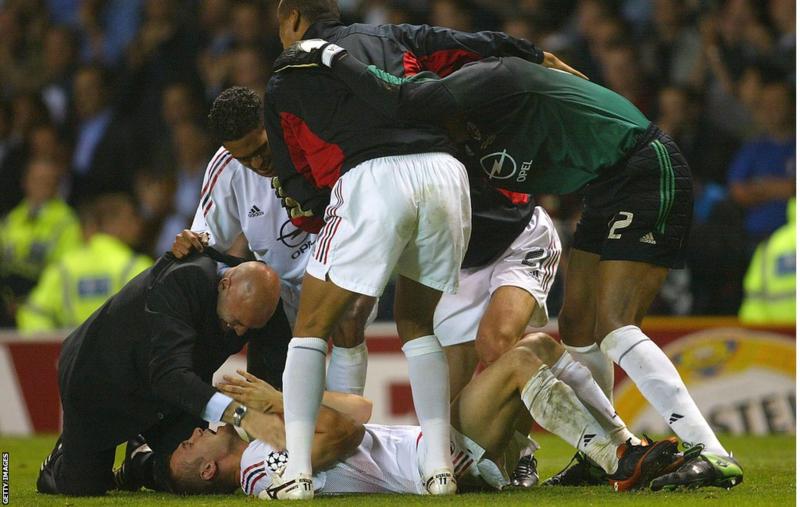Andriy and Valeriy: A collective quest for the European Cup.

Andriy and Valeriy: A collective quest for the European Cup.
Could I bring the Champions League trophy to Ukraine, Mr. Galliani?”
Adriano Galliani reads his face. The club he headed as vice-chairman to Silvio Berlusconi had just won Europe’s premier club competition for the sixth time, defeating Juventus on penalties at Old Trafford.
Here was the striker who had taken the winning spot-kick in his office with an unusual request.
In the trophy room of one of the giants of European football, the older man led him down a short corridor.
I have six of them, Andriy! Choose one you like.”
He pointed to the last in line, the one he had lifted into the Manchester night a few days earlier. On the private plane headed for Kyiv, that trophy was alongside Shevchenko.
Why? According to his new autobiography, My Life, My Football: “Promises must be kept.”
At the end of the Internazionale v Milan semi-final, both legs played at their shared San Siro stadium, Shevchenko promised to keep his promise.
He credits him with laying the foundation for all his success: the Champions League, Serie A, the 2004 Ballon d’Or, leading Ukraine into their first World Cup as an independent country. He had died a year earlier.
Although Shevchenko always addressed his former coach by his ancestral patronymic name as a sign of respect, football history remembers him as Valeriy Lobanovskyi, a revolutionary coach who managed Dynamo Kyiv in his hometown, the city he shared with Shevchenko, for three decades.
A founding father of modern football, he is without doubt. Had a few key moments in a handful of games during Lobanovskyi’s 30-year career gone differently, Shevchenko would have remembered Lobanovskyi as the greatest coach ever.
